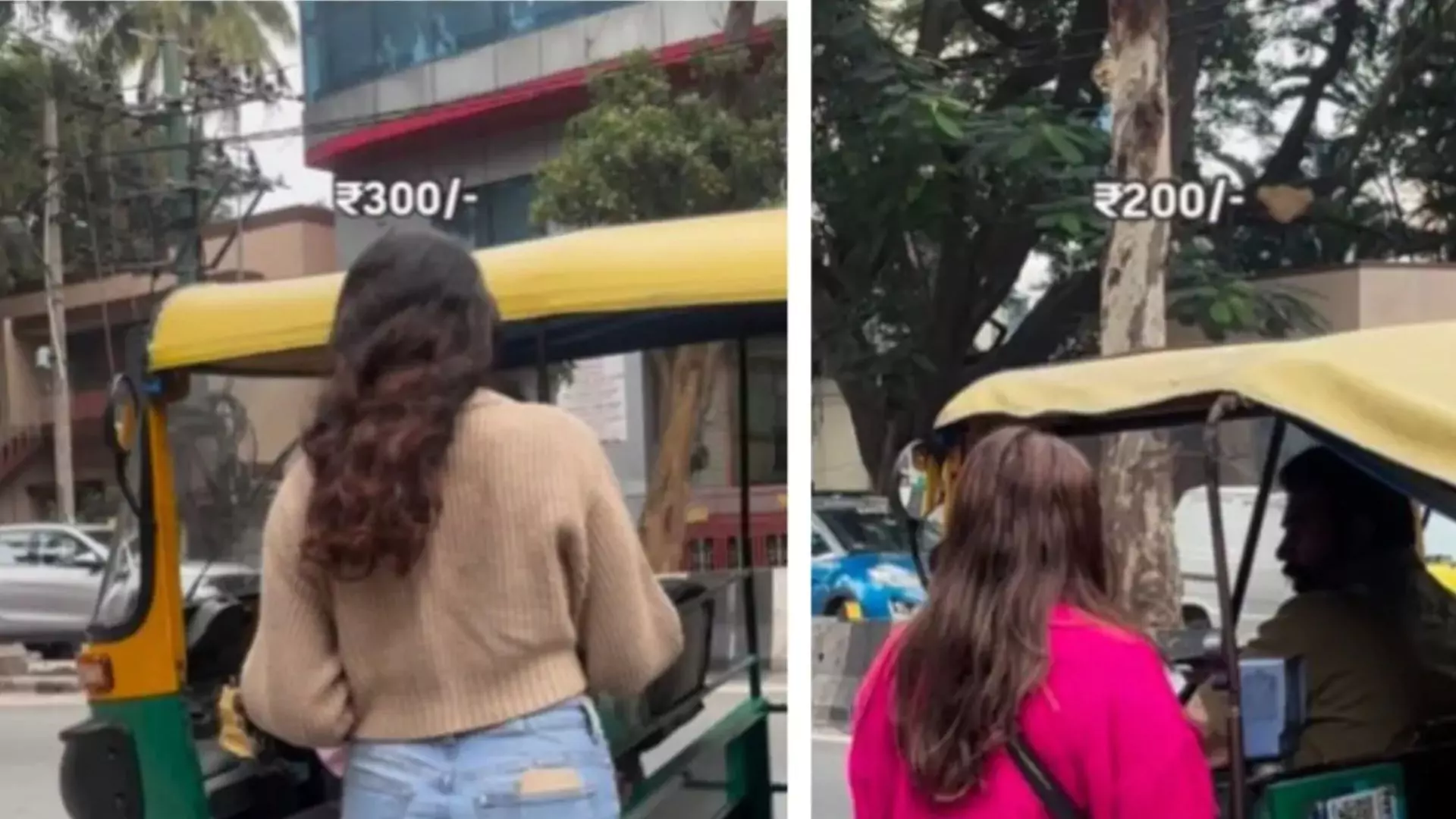A recent video showcasing two women testing fare charges by Bengaluru auto-rickshaw drivers based on the language spoken—Hindi and Kannada—has ignited a fresh wave of debate on social media. The experiment highlights linguistic preferences and their potential impact on everyday interactions, sparking widespread discussions about inclusivity and regional identity.
The video, which has amassed over four million views, features the women hailing auto-rickshaws across different locations in Bengaluru. While one of them communicated in Hindi, the other used Kannada to engage with the drivers. The results revealed notable differences in responses and fare charges depending on the language used.
Watch video here:
Disparities in Treatment Based on Language
In one instance, despite both women requesting a ride to the same destination, an auto-rickshaw driver rejected the Hindi-speaking woman but agreed to transport the Kannada-speaking woman.
Another driver quoted a fare of ₹300 to Indiranagar when approached in Hindi. However, when the same request was made in Kannada, the fare was reduced to ₹200. In a separate case, a driver ignored the Hindi-speaking woman but responded positively to the Kannada-speaking woman.
A Mixed Bag
The video’s virality has led to heated discussions in the comment section, reflecting diverse perspectives on the issue.
Some users criticized the drivers’ behavior, calling it discriminatory. A user commented:
“Come to Hyderabad, no one will force you to learn any language, and auto drivers will work for their living.”
Others defended the importance of learning the local language. A commenter wrote:
“We are all Indians first, but we should respect every culture and every language. So non-Kannadigas, learn Kannada.”
Another comment reflected frustration over resistance to adopting the local language:
“I don’t know what’s the problem with learning Kannada even after many years.”
Some, however, expressed broader concerns about regionalism. One user stated:
“Pathetic mindset. South Indian states always cry only about their state but never care about the country.”
Language and Identity in India
This debate is part of a larger narrative in India, where linguistic diversity often intersects with regional and cultural identity. With 22 scheduled languages and numerous dialects, India’s linguistic fabric is both a strength and a source of contention.
In cities like Bengaluru, known for their cosmopolitan character and significant non-Kannada-speaking populations, such incidents bring to light the friction between regional pride and inclusivity.
ALSO READ: This is nuts’: Vivek Ramaswamy Slams NYC-Pakistan Deal Over Roosevelt Hotel Lease for Migrants




